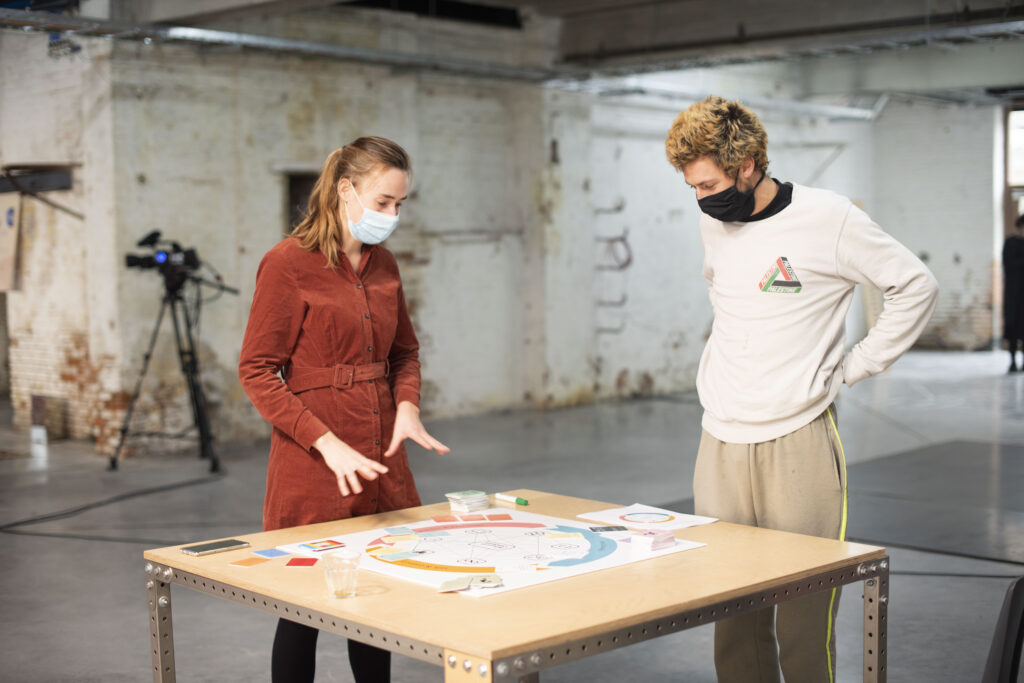Policy Co-creation Event Ghent | Common Ground: Building a Foundation for Homes of Commons

Background of the event
In the framework of the Cultural and Creative Spaces and Cities (CCSC) project, Timelab and the University of Antwerp, in cooperation with European Cultural Foundation (ECF) and Trans Europe Halle (TEH), organised the hybrid co-creation lab: Common Ground: Building a Foundation for Homes of Commons. The Policy Co-Creation event took place physically in Ghent, Belgium, and digitally to reach wider online audiences.
See photos from the event here
The event follows the previous co-creation lab in June 2020: Common Sense: Let’s Build a Bottom-Up European Democracy. The central topic was how to build “Homes of Commons” as tools to bring Europe closer to citizens. A Home of Commons strives to be a hybrid—physical and digital— space of encounter between the European Union and the local level.
The School of Commons
In this spirit, during the Co-creation Lab, we explored the concept of a “School of Commons” as a tool to enable the transition of local cultural and creative spaces into Homes of Commons.
Over the last four years, Timelab has developed a School of Commons in Ghent in Belgium based on a deeper analysis of commons practices. It is a framework to exchange knowledge and expertise about commoning. To test and prototype tools and methodologies for commoning. To start the transition to make your organisation, project, or process more commons-based.
Programme
Here you can access the detailed programme for this co-creation event.
About the physical event
8 people were in Timelab (Ghent, Belgium) for the physical part of the co-creation lab. The overall objective during the physical sessions was to apply the tools and methodologies of the School of Commons. Participants brought their own tools and methodologies to test how ‘commons proof’ they were.
Finally, participants also had the opportunity to experience parts of the School of Commons game (see note below): a methodology with gaming elements to make your own organisation, project, or process more commons-based. These were also live-streamed, with the possibility for online audiences to also interact.
About the digital event
All audiences were invited to the digital part of the co-creation lab, with 206 people subscribed to the event, which included both speakers and CSSC project partners.
101 people followed the stage sessions that included the opening and closing panels and, 102 people followed the open discussions and co-creation sessions, with 40 people actively participating in the co-creation process.
The overall objective during the digital sessions aimed to explore:
- How can a School of Commons enable the transition of local and cultural spaces into Homes of Commons, starting from real cases (Urban Labs involved in the CCSC project)?
- How can Schools of Commons be reproduced and, how can the network grow?
- How can a School of Commons be implemented on a local, national, and European level?
- Do Schools or Homes of Commons need to be certified and, if yes, by whom?
These sessions were shown live in Timelab, whilst also interacting with the on-site participants.
